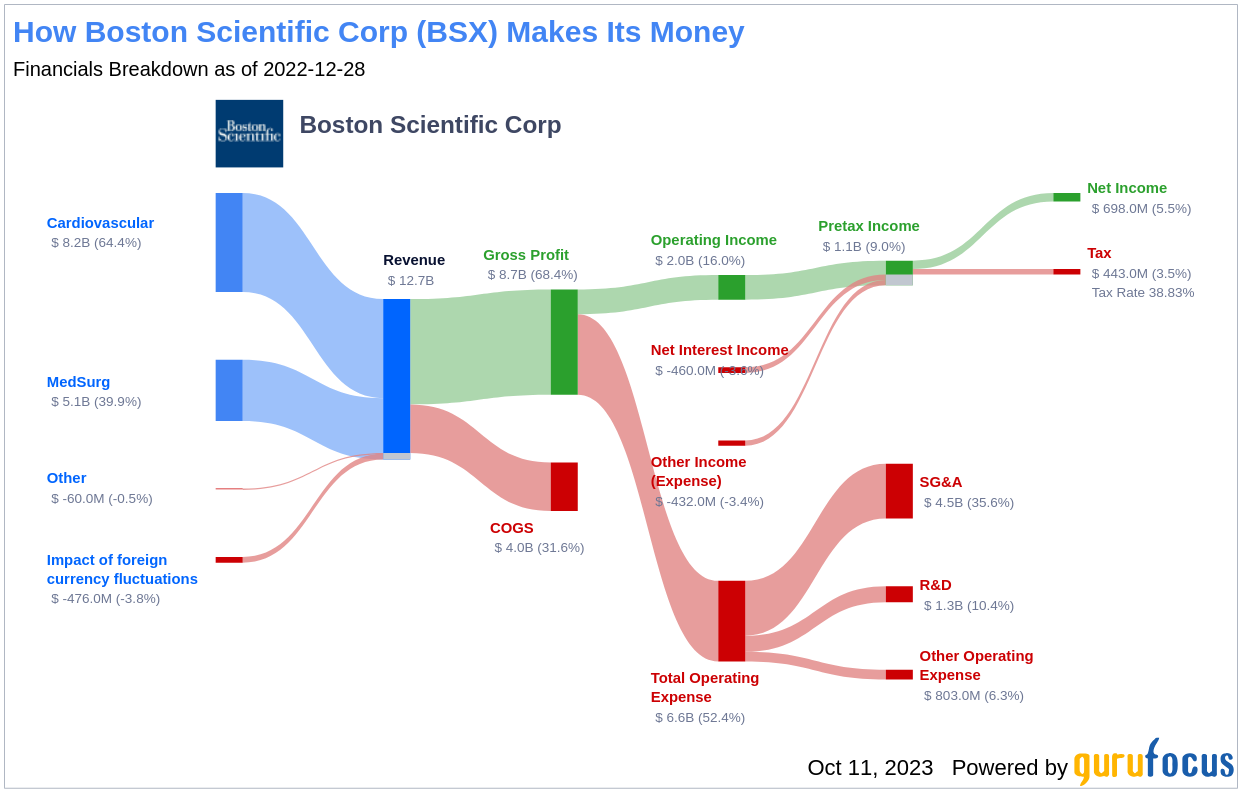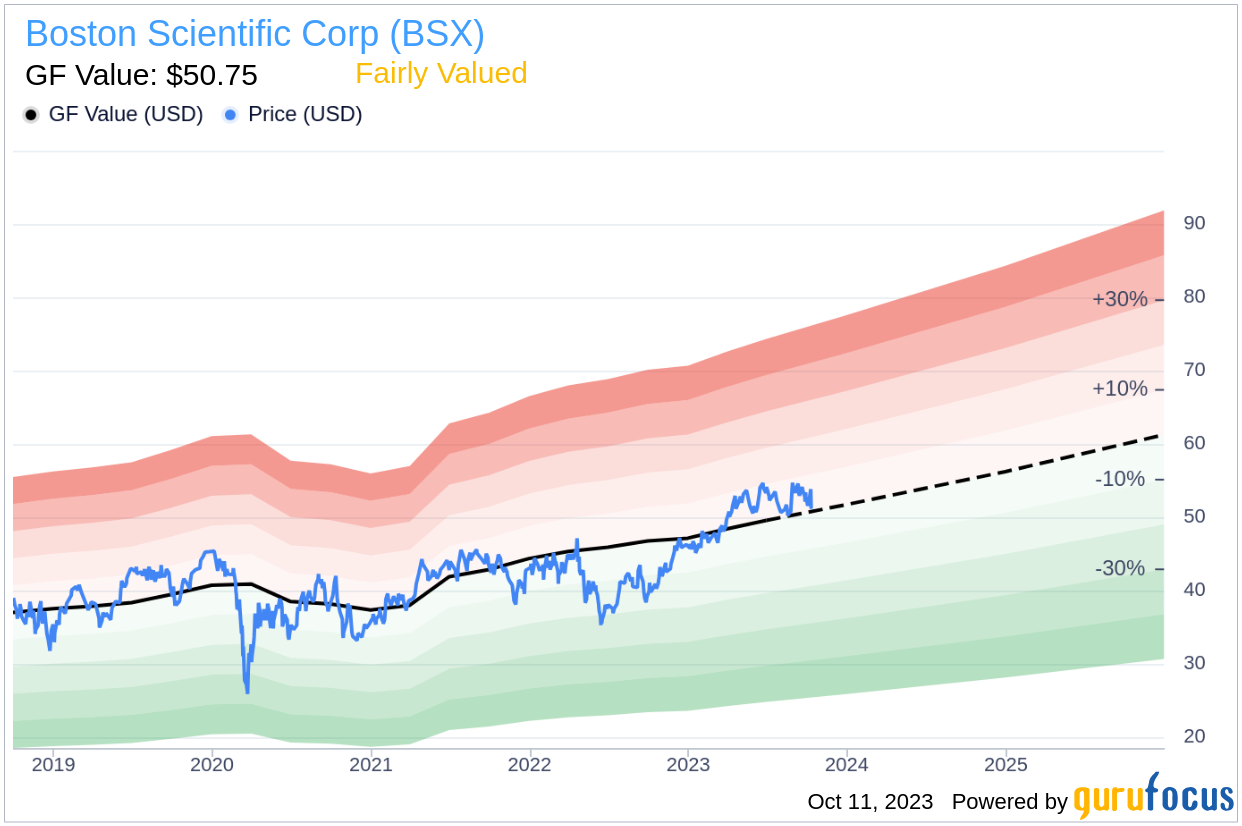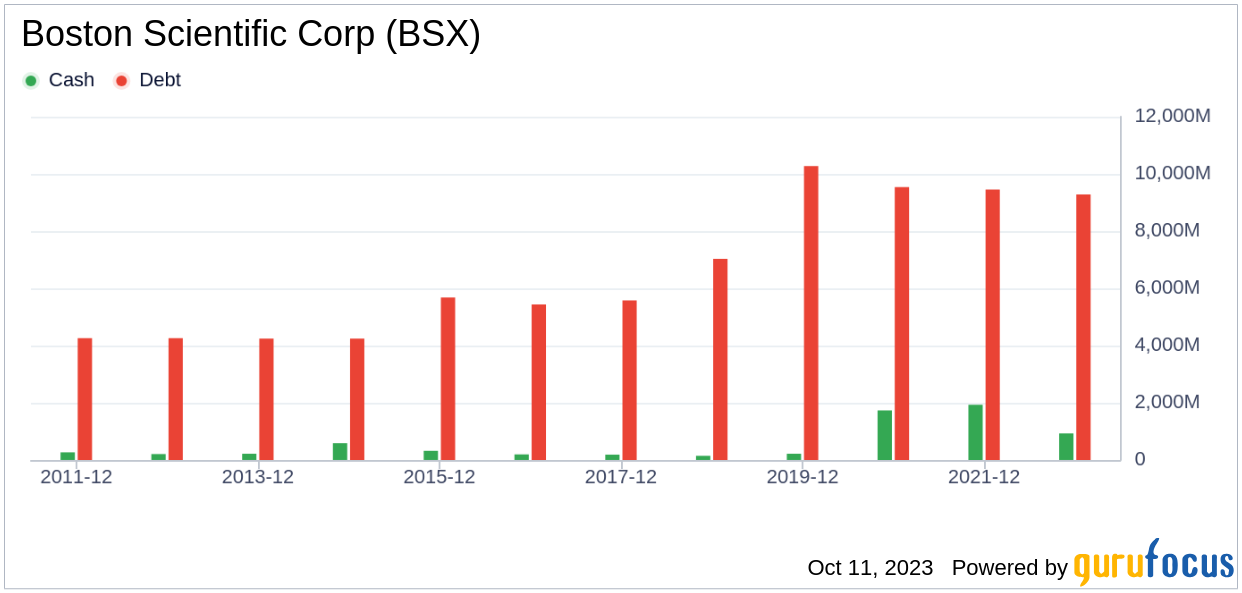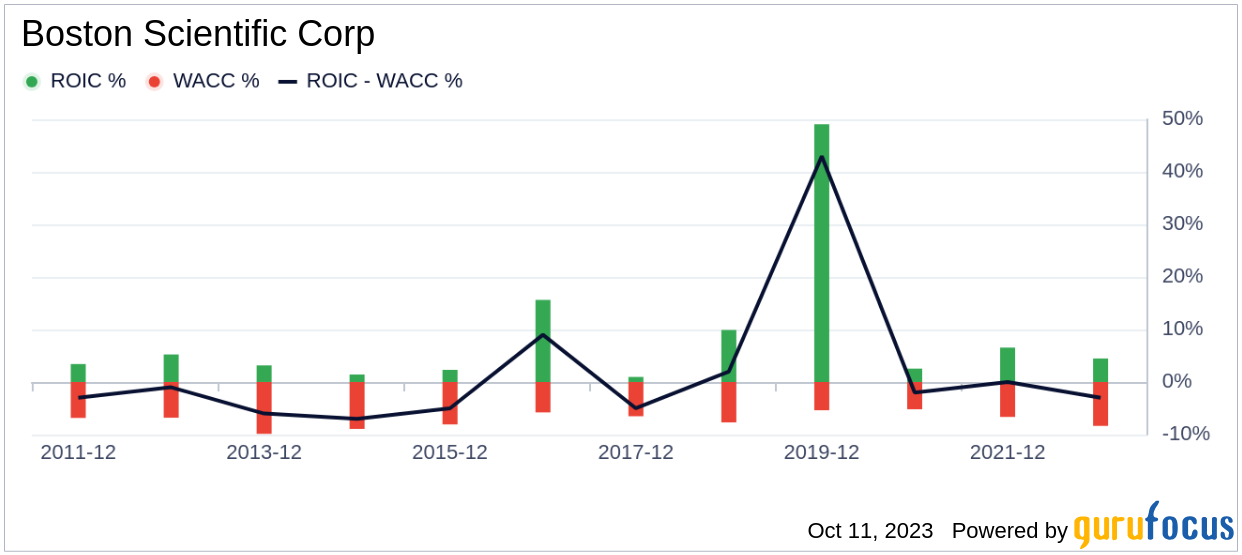Boston Scientific Corp (BSX, Financial) has experienced a daily loss of 4.13% and a 3-month gain of 2.09%, with an Earnings Per Share (EPS) of 0.6. The question that arises is whether the stock is fairly valued at its current performance. This article provides a detailed valuation analysis of Boston Scientific, shedding light on its intrinsic value and future prospects.
Introducing Boston Scientific Corp (BSX, Financial)
Boston Scientific is a leading producer of less invasive medical devices that are inserted into the human body through small openings or cuts. Its products are used in angioplasty, blood clot filtration, cardiac rhythm management, catheter-directed ultrasound imaging, upper gastrointestinal tract diagnostics, interventional oncology, neuromodulation for chronic pain, and the treatment of incontinence. The firm markets its devices to healthcare professionals and institutions globally, with foreign sales accounting for nearly half of the firm's total sales.
The stock of Boston Scientific currently trades at $51.58 per share, with a market cap of $75.50 billion. This price is closely aligned with its GF Value of $50.75, indicating that the stock is fairly valued.
The GF Value of Boston Scientific
The GF Value is a proprietary measure of a stock's intrinsic value, computed considering historical trading multiples, a GuruFocus adjustment factor based on past performance and growth, and future business performance estimates. The GF Value Line denotes the stock's ideal fair trading value.
At its current price of $51.58 per share and the market cap of $75.50 billion, Boston Scientific stock gives every indication of being fairly valued. This suggests that the long-term return of its stock is likely to be close to the rate of its business growth.
Link: These companies may deliever higher future returns at reduced risk.
Financial Strength of Boston Scientific
Companies with poor financial strength offer investors a high risk of permanent capital loss. To avoid permanent capital loss, an investor must do their research and review a company's financial strength before deciding to purchase shares. Both the cash-to-debt ratio and interest coverage of a company are a great way to understand its financial strength. Boston Scientific has a cash-to-debt ratio of 0.05, which ranks worse than 96.16% of 833 companies in the Medical Devices & Instruments industry. The overall financial strength of Boston Scientific is 6 out of 10, which indicates that the financial strength of Boston Scientific is fair.
Profitability and Growth of Boston Scientific
Investing in profitable companies, especially those with consistent profitability over the long term, is less risky. A company with high profit margins is usually a safer investment than those with low profit margins. Boston Scientific has been profitable 6 over the past 10 years. Over the past twelve months, the company had a revenue of $13.40 billion and Earnings Per Share (EPS) of $0.6. Its operating margin is 16.58%, which ranks better than 78.43% of 830 companies in the Medical Devices & Instruments industry. Overall, the profitability of Boston Scientific is ranked 6 out of 10, which indicates fair profitability.
Growth is probably the most important factor in the valuation of a company. The faster a company is growing, the more likely it is to be creating value for shareholders, especially if the growth is profitable. The 3-year average annual revenue growth rate of Boston Scientific is 5%, which ranks worse than 57.36% of 727 companies in the Medical Devices & Instruments industry. The 3-year average EBITDA growth rate is 7.4%, which ranks worse than 53.42% of 730 companies in the Medical Devices & Instruments industry.
ROIC vs WACC
Another way to evaluate a company's profitability is to compare its return on invested capital (ROIC) to its weighted cost of capital (WACC). Return on invested capital (ROIC) measures how well a company generates cash flow relative to the capital it has invested in its business. The weighted average cost of capital (WACC) is the rate that a company is expected to pay on average to all its security holders to finance its assets. If the ROIC is higher than the WACC, it indicates that the company is creating value for shareholders. Over the past 12 months, Boston Scientific's ROIC was 4.6, while its WACC came in at 8.
Conclusion
In conclusion, the stock of Boston Scientific (BSX, Financial) gives every indication of being fairly valued. The company's financial condition is fair and its profitability is fair. Its growth ranks worse than 53.42% of 730 companies in the Medical Devices & Instruments industry. To learn more about Boston Scientific stock, you can check out its 30-Year Financials here.
To find out the high quality companies that may deliver above average returns, please check out GuruFocus High Quality Low Capex Screener.
This article, generated by GuruFocus, is designed to provide general insights and is not tailored financial advice. Our commentary is rooted in historical data and analyst projections, utilizing an impartial methodology, and is not intended to serve as specific investment guidance. It does not formulate a recommendation to purchase or divest any stock and does not consider individual investment objectives or financial circumstances. Our objective is to deliver long-term, fundamental data-driven analysis. Be aware that our analysis might not incorporate the most recent, price-sensitive company announcements or qualitative information. GuruFocus holds no position in the stocks mentioned herein.




